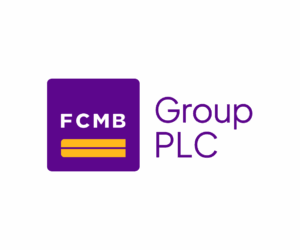Tax authorities and taxpayers are expected to reap the benefits of President Bola Tinubu’s new tax legislation as the nation implements a new tax regime beginning January 1, 2026.
One of the tax legislations (Ombud) is to mediate complaints and resolve grievances arising from tax-related matters from the tax authorities, tax officials and members of the taxpaying public without a burden on the parties.
The Joint Revenue Board of Nigeria (Establishment) Act, 2025 which provides for the Office of the Tax Ombud (OTO) is among the recent four tax legislations assented to by the president.
The Nigeria Revenue Service (Establishment) Act, 2025, the Nigeria Tax Administration Act, 2025, and the Nigeria Tax Act, 2025 are also recent legislations.
The Ombud is expected to benefit taxpayers by ensuring fair treatment and protection against abuse, delays or maladministration; it provides a low-cost, simple, and non-judicial way to resolve complaints and build confidence in the tax system, encouraging voluntary compliance, strengthens taxpayer rights and awareness of entitlements; provides an independent channel to resolve disputes and offers quicker complaint resolution as opposed to lengthy legal processes, among other gains to the taxpaying public.
For the tax authorities, the Ombud would promote accountability and integrity, thereby enhancing taxpayers’ voluntary compliance; reduce the backlog of disputes and litigation, reduce pressure on tax tribunals/courts and strengthen public trust and credibility, thus enhancing the tax authority’s reputation. It also helps to provide feedback to improve service delivery and internal processes to improve efficiency in tax administration; identify systemic issues, helping the tax authority reform policies and operations, among others.
Specifically, Sections 41, sub-section 1 (a to i) states that “The Office of the Tax Ombud shall have the powers necessary or expedient for the performance of its functions under this act, including as an independent and impartial arbiter to review and resolve complaints relating to tax, levy, regulatory fee and charges, customs duty or excise matters; review complaint against tax officials and authorities and resolve its procedures; receive and investigate complaints lodged by taxpayers regarding the actions or decisions of the tax authorities, agencies or their officials; enter and inspect any premises or place where any tax authority, agency or official performs any function or duty under any law imposing taxes, levies, charges and fees for the purpose of carrying out investigation; invite and examine any person who may have information or evidence relating to a complaint or an investigation; make recommendations of its findings to the revenue authorities and other government agencies on matters relating to taxes, levies, charges and fees, for implementation; institute legal proceedings on behalf of the taxpayer; provide information and raise awareness of taxpayer rights and obligations, functions of the tax authorities and the role of the office of the Tax Ombud; identify and review systemic and emerging issues on fiscal policies and its impact on the tax system, in collaboration with the relevant agencies; serve as a watch-dog against any arbitrary fiscal policy of the government or by any of its agency and report such policy to the National Assembly; issue guidelines, directives or orders for the resolution of complaints or the implementation of recommendations; and delegate any of the powers or functions to any officer of the Tax Ombud”.
Interestingly, Section 41 (2) states, “In the exercise of its functions under this act, the Office of the Tax Ombud shall not charge a fee.
“The Office of the Tax Ombud shall not have jurisdiction to interpret tax legislation other than to the extent that it relates to operational, procedural or administrative issues arising from the application of the provisions of the relevant tax law; review or determine issues that are sub judice before a court of competent jurisdiction or tribunal on the date of the receipt of a complaint; determine any tax liability or duty or issue tax assessment; or review any complaint by or on behalf of a tax official concerning matters relating to the relevant tax authority in respect of any personal grievance relating to the office.
Mrs Bolanle Azeez, acting director, Tax Policy and Advisory Department and Mr Olufemi Olarinde, head, Fiscal and Tax Reforms Implementation Division, were among the Federal Inland Revenue Service (FIRS) tax experts during the Taxpayer Webinar Series (TWS) on September 23, 2025.
Both practitioners gave perspectives and x-rayed the functions and benefits of the ‘Ombud’ to taxpayers and tax authorities on the applicability of the new OTO operations as the nation transitions to a new tax regime.
For Azeez, the tax Ombud remains a key institution under the new tax legislation, “It balances the relationship between citizens and other relevant agencies. Its role promotes fairness, transparency, and accountability. Ultimately, it strengthens tax administration and taxpayer trust.”
Olarinde categorised Ombud models into hybrid, internal and independent, adding, “The Tax Ombuds model began in the late 20th century as countries sought to enhance taxpayer rights and fair tax administration.
The Ombudsman concept originated in Sweden in 1809, designed to protect citizens against maladministration. The idea spread globally, with specialised ombudsman offices now established for banking, insurance and taxation”.
According to him, Nigeria has now established the Office of the Tax Ombuds to promote transparency, strengthen taxpayer confidence, improve compliance, and ultimately promote sustainable revenue growth.
Speaking on the same issue, the coordinating directors, Government and Medium Taxpayers Group (GMTG), Dick Irri and Special Duties Group (SDG), Mr Tamadi Shettima urged staff and taxpaying public to take note of the ongoing reform in the nation’s tax administration.
Irri said that the Ombud is introduced to help taxpayers and tax authorities, saying, “I just want to encourage everyone to take note of this new concept coming on board. In tax Ombud, in African tradition, we have a belief that you cannot beat a child and not expect the child to cry.
So, taxpayers who may be at risk of repaying or have complained about the attitude of revenue officials or behaviours that are not satisfactory can complain to them. And that is the essence of the tax Ombud, so to speak, in a layman’s language. It’s not everything that must go to court.
Also, Shettima described the introduction of the Ombud as a noble initiative that would ensure taxpayers’ rights and privileges are preserved and educate them on their obligations to support efforts to ensure a seamless tax administration in the country.
In the same vein, Mrs Lovette Ononuga, director, Taxpayer Services Department (TPSD), noted that creating the Ombud under the new tax reform reflects the government’s recognition of taxpayers’ crucial role in the nation’s development.
She explained that the new initiative aligns with the president’s Renewed Hope Agenda which emphasised fairness, inclusiveness and accountability in governance.
“By embedding the Ombud function in our tax system, the government is not only strengthening revenue mobilisation but also building a tax culture based on trust and mutual respect,” she added.
According to her, FIRS is determined to facilitate compliance, improve service delivery, and ensure that every taxpayer feels valued as a true partner in Nigeria’s developmental journey.








